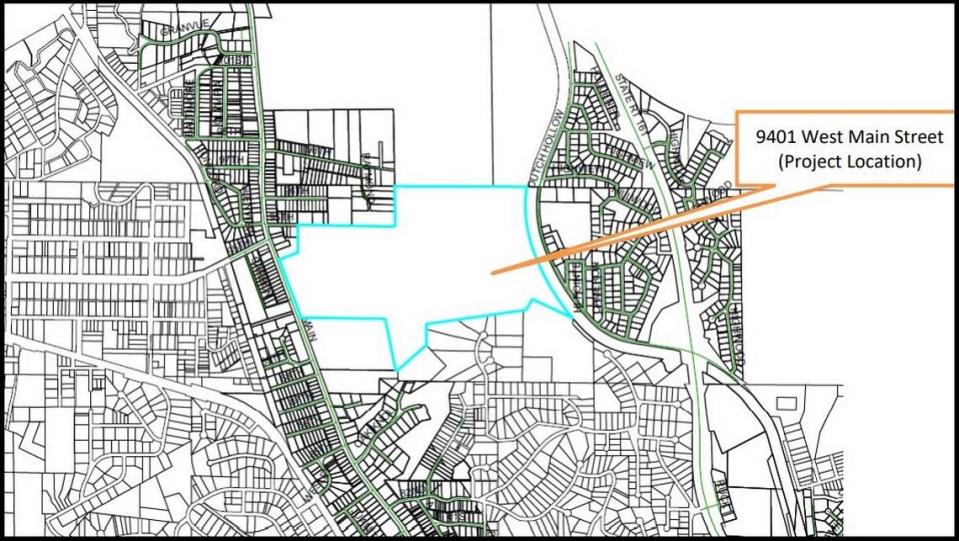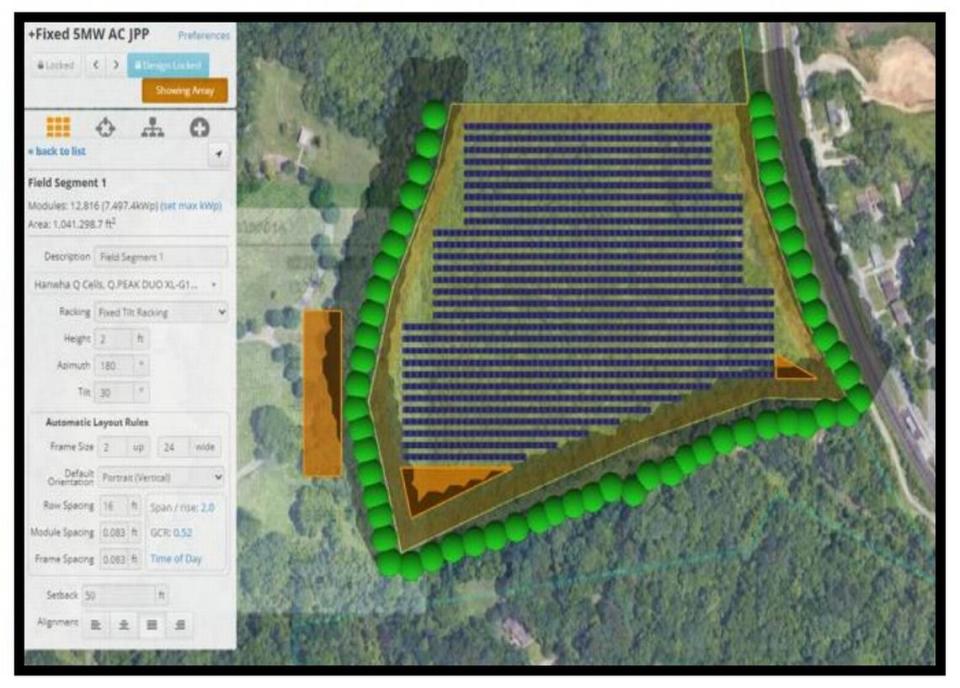City of Belleville one step closer to buying cemetery and leasing land for solar farm
Belleville City Council has voted to take the next step on a proposed plan to buy Mount Hope Cemetery and lease some of the property for a solar farm to pay for its upkeep.
Aldermen held a special meeting Tuesday night that mainly consisted of a closed session to discuss “purchase or lease of real property.” After the session, they passed a resolution directing city staff to bid on the cemetery’s 132 acres at a foreclosure sale.
The resolution didn’t specify the expected cost or other details. The vote was unanimous with 12 of 16 aldermen present. Jamie Eros, Kara Osthoff, Mary Stiehl and Chris Rothweiler were absent.
Under the plan, the city would contract with a Texas-based vendor to clear trees from a 25-acre wooded section behind Mount Hope’s burial ground, build a 5-megawatt community solar farm, operate it for 25 years and pay $75,000 to $80,000 a year in rent.
“I just think it’s a solution to a problem,” Mayor Patty Gregory said after the 30-minute meeting.
Gregory was referring to the fact that the public works department has been spending about $100,000 a year to mow and otherwise maintain a cemetery the city doesn’t own.
Nearly 27,000 people are buried at Mount Hope, which dates back to the late 1800s. The most recent owner abandoned it about 20 years ago while being accused of scamming people on prepaid funeral arrangements.
A St. Clair County judge appointed a receiver, who was later replaced by Sara Wooley, an attorney with the Illinois comptroller’s office. Problems with tall grass, weeds and trash prompted the city to take over maintenance.

It’s unclear when the foreclosure sale will take place. Wooley said Tuesday she’s been waiting to file notices until the city signaled that it was willing and able to buy the property.
“I didn’t want to hold the sale if the city couldn’t bid on it,” she said, noting that it has to be sold to an “eligible bidder,” one that is capable of maintaining and operating a cemetery.
“Obviously, anybody can come and bid. I’m not limiting it to them. But I think all the Mount Hope families think that the city is in the best position because they run Walnut Hill very well, and they’ve been mowing Mount Hope, and they do a great job.”
Five burials have taken place at Mount Hope so far this year.
The back section of the property is zoned two-family residential. In January, the City Council approved a special-use permit for a solar farm without committing to its development.
At that meeting, eight local residents stood up to voice opposition. Their main argument was that 25 acres of solar panels would destroy a beautiful natural area with plentiful wildlife and disrupt the peace and tranquility of the cemetery and neighborhood.
One resident argued that flat, vacant land would be more suitable for a solar farm than the steep terrain behind the burial ground.
Tuesday night’s special meeting was announced late last week on the city’s website and Monday afternoon on its Facebook page. Only one person attended, besides aldermen and city officials.
James Clarida, an elementary-school teacher with a degree in environmental management, questioned why the decision was “rushed” through. He has relatives buried at Mount Hope.
“I know they’re going to (build the solar farm),” Clarida said before the vote. “This is just a formality to make it appear that they’re giving the public a chance to voice their concerns. They’ve already made up their minds.”
Clarida told aldermen he would like to see a non-profit foundation set up to raise money and operate the cemetery instead of cutting down trees and destroying habitat for a solar farm.

In December, Belleville’s Zoning Board of Appeals voted 5-0 to recommend that the full City Council approve the special-use permit for a solar farm. Cliff Cross, director of economic development, planning and zoning, told members the plan was contingent on the project receiving up to $2 million in state incentives.
The city worked with vendor Shine Development Partners, owned by Hover Energy, to apply for incentives through Illinois Shines, a state program implemented by the Illinois Power Agency.
Kelly Turner, the agency’s chief legal counsel, said Tuesday the program administrator approved the project’s Part 1 application in late December and the Illinois Commerce Commission OK’d a contract in early January that would guide its sale of renewable-energy credits to a utility company.
“From our point of view, (Shine and the city) have the go-ahead to participate in the program,” she said.
After the solar farm is built, the Illinois Power Agency must certify that it meets program requirements and contract terms through a Part 2 application process before the vendor can begin operating and receive the utility-funded incentives, according to Turner.
When asked why the city called a special meeting to vote on the resolution instead of doing it at a regular meeting, Gregory and Cross said the vendor told them it had missed a Feb. 19 deadline to submit paperwork and needed to meet an extended deadline of May 3.
The total renewable-energy-credit contract value of the 5-megawatt solar farm at Mount Hope is about $7.2 million, according to Megha Hamal, spokesman for the Illinois Power Agency.
“This is the maximum quantity of RECs (renewable-energy credits), and the actual RECs delivered would be what the utility would be invoiced over the term of the contract,” she wrote in an email.

